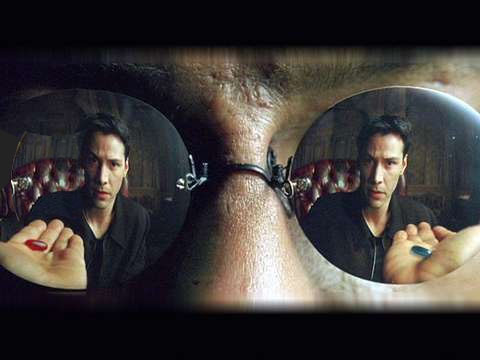
In the “Information” thread below, Broken Yogi posted a length to this magazine article describing the pioneering work in quantum mechanics being done by Anton Zeilinger and his team in Vienna. Here’s how it ends:
Late last year Brukner and Kofler showed that it does not matter how many particles are around, or how large an object is, quantum mechanics always holds true. The reason we see our world as we do is because of what we use to observe it. The human body is a just barely adequate measuring device. Quantum mechanics does not always wash itself out, but to observe its effects for larger and larger objects we would need more and more accurate measurement devices. We just do not have the sensitivity to observe the quantum effects around us. In essence we do create the classical world we perceive, and as Brukner said, “There could be other classical worlds completely different from ours.”
Zeilinger and his group have only just begun to consider the grand implications of all their work for reality and our world. Like others in their field, they had focused on entanglement and decoherence to construct our future information technology, such as quantum computers, and not for understanding reality. But the group’s work on these kinds of applications pushed up against quantum mechanics’ foundations. To repeat a famous dictum, “All information is physical.” How we get information from our world depends on how it is encoded. Quantum mechanics encodes information, and how we obtain this through measurement is how we study and construct our world.
I asked Dr. Zeilinger about this as I was about to leave his office. “In the history of physics, we have learned that there are distinctions that we really should not make, such as between space and time… It could very well be that the distinction we make between information and reality is wrong. This is not saying that everything is just information. But it is saying that we need a new concept that encompasses or includes both.” Zeilinger smiled as he finished: “I throw this out as a challenge to our philosophy friends.”
This brought to mind one of the most popular entries I ever posted on my old Crunchy Con blog: the one about linguist Dan Everett and his bizarre experience in the Amazon jungle, in which the natives with which he was living said they could see some spirit being that he couldn’t see. If you never read that post, or if you haven’t read it since it went up over a year ago, follow the link and take a look. It is absolutely fascinating. The thing that’s so breathtaking about it, I think, is that even today, Everett, an atheist and a scientist, is not sure whether or not the Indians were having a mass hallucination, or if they saw something that really was there, that he could not. He writes in his book about his life in the Amazon:
What had I just witnessed? Over the more than two decades since that summer morning, I have tried to come to grips with the significance of how two cultures, my European-based culture and the Pirahas’ culture, could see reality so differently. I could never have proved to the Pirahas that the beach was empty. Nor could they have convinced me that there was anything, much less a spirit, on it.
As a scientist, objectivity is one of my most deeply held values. If we could just try harder, I once thought, surely we could each see the world as others see it and learn to respect one another’s views more readily. But as I learned from the Pirahas, our expectations, our culture, and our experiences can render even perceptions of the environment nearly incommensurable cross-culturally.
Read more here.
Question: Could Zeilinger’s experiments provide a purely physical basis for establishing the value of faith? I’m not talking about religious faith, necessarily. What I’m getting at is this: if there’s far more to reality than we humans, as information receivers, can observe, given our limitations and lack of sensitivity, then is it possible that in order to perceive certain aspects of reality, one has to be open to it in some fundamental sense? That is, to have faith that such a thing is possible is the first step you have to take before you are able to sense it? In that way, choosing to believe something, and really making that mental shift into accepting it as real, could open up the doors of perception in our minds as information receivers to information fields (that is, levels of reality) that are closed to us in a normal state.
What do you think? Philosophers, help!

